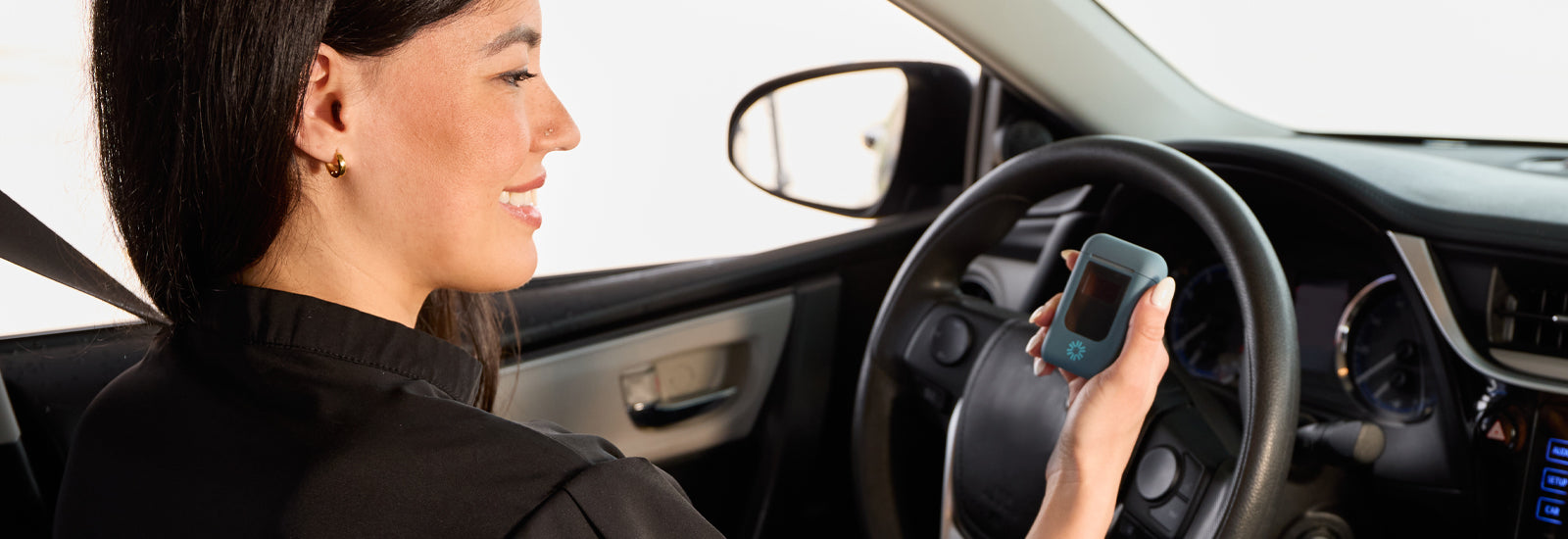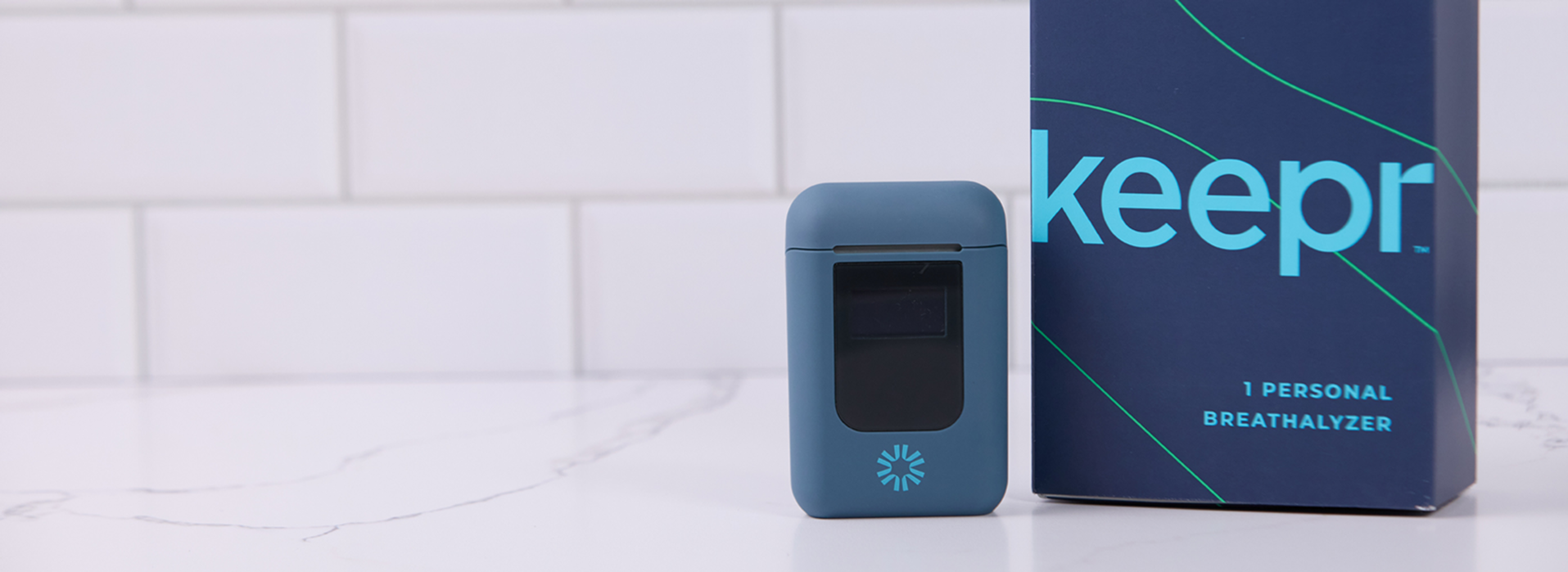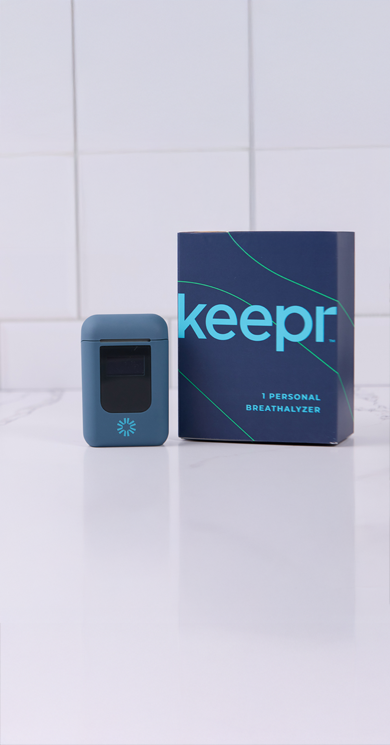
Guide to Co-Parenting with an Alcoholic
8 min read
Practical tips on how to minimize risks and keep your child informed and safe.
Key Takeaways
- Living with an alcoholic parent can have long-term negative impacts on a child’s development and self-esteem.
- Expect limitations around visitation and custody when alcoholism and parental fitness are involved.
- Personal breathalyzers like Keepr® can provide real-time, verifiable results about a co-parent's sobriety while caretaking.
Co-parenting with someone on a recovery journey can be challenging. From navigating custody agreements and talking to your child about alcoholism to useful accountability tools and legal support, there are strategies to help you along the way.
This is a comprehensive and practical guide to co-parenting with an alcoholic, with key points including:
- How to spot risks to child safety and wellbeing
- Child custody and alcoholism
- Talking to your child about an alcoholic co-parent
- How remote alcohol monitoring can help
- Useful resources for co-parenting with an alcoholic
This blog is for informational purposes only and does not constitute legal advice. For advice specific to your situation, consult a qualified family law professional.
Defining Alcoholism
Alcoholism is a widely used, commonly accepted term describing severe, compulsive dependence on alcohol, whereas alcohol use disorder (AUD) is the medical diagnosis defined as a problematic pattern of drinking causing impairment or distress. AUD is classified by severity and specific criteria, allowing for more accurate diagnosis and treatment.
In this blog, we’re using these terms interchangeably, as well as other terms like ‘alcohol misuse’ to account for the variety of relationships a person might have with alcohol.
The Risks of Co-Parenting with an Alcoholic
When co-parenting with an alcoholic, there are several risks to be aware of.
- Child safety: Children may be at increased risk for accidents or dangerous situations such as driving under the influence if a parent isn’t sober while caretaking.
- Unreliable parenting: Alcohol dependency can lead to missed pickups, canceled visits, and a lack of consistency in parenting responsibilities.
- Parental conflict: Communication with an alcoholic co-parent can be tense, making it difficult to make decisions or resolve disputes.
- Legal challenges: If alcohol use leads to legal issues such as DUIs or arrests, you may need to go through the courts to get modified custody arrangements.
How Alcohol Abuse Impacts Parenting and Child Development
Children exposed to alcohol abuse can experience intense feelings like:
- Anxiety
- Fear
- Confusion
- Guilt
- Anger
- Shame
- Disgust
- Embarrassment
The instability of living with an alcoholic parent, along with witnessing erratic behavior, outbursts, or arguments, can also have negative effects on a child’s long-term development and self-esteem.
Legal Concerns and Custody Implications
Family court proceedings aim to prioritize the best interests of the child. So, when alcoholism and parental fitness come into question, there will most likely be limitations around visitation and custody.
How Courts View Alcohol Use Disorder in Custody Disputes
Alcoholism doesn’t automatically disqualify a parent from child custody. However, courts generally take alcohol-related custody concerns very seriously.
The main priority is the physical and emotional well-being of the child. So, if the parent with an alcohol use disorder is actively seeking treatment and showing signs of sustained recovery, the court may potentially consider more lenient options.
Custody can also be modified over time, depending on the recovery journey. This is where things like alcohol testing, counseling, and rehabilitation could potentially have a positive impact.
Navigating Custody Agreements When Alcohol Misuse Is Involved
If you are going through custody hearings with an alcoholic ex-partner and have concerns around your child’s well-being, it’s important to have proof and documentation. This can include:
- Police reports (for incidents like DUIs, domestic violence, etc.)
- Medical or rehab records
- Testimonies from witnesses
- Logs of missed visitations, erratic behavior, etc.
If you already have a custody arrangement and are concerned that your co-parent’s drinking habits are affecting their decision-making, seek legal advice and consider revisiting the custody order.
Steps you can take include:
- Document everything: Keeping detailed records of violations or concerning behavior, including missed visits, signs of intoxication, or unsafe conditions. Keep texts, emails, and voicemails as evidence.
- Consult your lawyer: Family law attorneys can help you understand and exercise your custody rights.
- Go back to court: If necessary, you may be able to petition the court to enforce your custody order, modify it to reduce or suspend visitation, mandate substance abuse treatment, and/or request alcohol testing.
If you believe your child is in immediate danger due to the co-parent’s alcohol use (e.g. driving under the influence, neglect, aggression), you may contact emergency services.
Prioritizing Child Safety and Well-Being
When it comes to prioritizing your child’s safety and well-being, it’s useful to focus on:
- Setting clear boundaries and rules
- Talking to your child about alcohol consumption
- Keeping them safe and informed
- Knowing the signs of risk
Setting Clear Boundaries and Rules
A custody agreement places clear rules that may help you create and maintain a parenting plan with your ex-partner or ex-spouse. However, setting communication boundaries is also key:
- Avoid emotional confrontation.
- Keep communication brief, factual, and focused on the child’s needs.
- Consider using a co-parenting app to keep a record of all interactions.
How to Talk to Your Child About Alcohol Use
When talking to your child about a co-parent’s alcohol use, create a safe space where they feel heard and supported. Open and honest communication is essential for both their emotional well-being and safety.
Here are some tips for maintaining an open dialogue about alcohol consumption and alcohol abuse:
- Be honest but gentle: Explain what alcohol is and that some people struggle with using it safely.
- Acknowledge their feelings: Let the child express any confusion, fear, anger, or other difficult feelings. Validate their emotions without blaming anyone.
- Clarify it’s not their fault: Reassure them that they didn’t cause the adult’s drinking and that it’s not their job to fix it.
- Encourage open communication: Tell them it’s okay to ask questions or talk to you about their concerns.
- Offer stability: Emphasize that they are safe and loved, and describe what steps are being taken to support the person with alcoholism.
- Provide age-appropriate facts: As they get older, you can share more about the effects of alcohol and addiction.
- Seek support if needed: Involve a counselor, teacher, or support group if they need help processing the situation.
You can also help keep your child safe and informed by:
- Setting clear boundaries: Outline when and how they will spend time with the other parent.
- Making legal arrangements: Formalize custody arrangements through family court.
- Being a stable presence: Provide routine, emotional support, and a calm home environment.
- Looking out for signs of distress: Look for behavioral changes and get help if needed.
- Documenting concerns: Keep records of any incidents that could affect your child.
Recognizing When Your Child Is at Risk
Understanding when your child is at risk can be difficult when you’re not with them during your co-parent's time. However, there are some emotional, behavioral, and physical signs you can look out for:
- Behavioral: Withdrawal, aggression, tantrums, regression (e.g. bedwetting, clinginess), or issues like becoming overly anxious or fearful, especially around visits.
- Emotional: Expressing worry about your co-parent or displaying excessive guilt, shame, or self-blame.
- Social: Drops in grades, difficulty concentrating, conflicts with kids or teachers, and avoiding social situations.
- Physical: Injuries, frequent accidents, or signs of neglect (e.g. hunger, fatigue, poor hygiene).
- Verbal: Saying they were left alone or unsupervised, talking about dangerous situations (e.g. drunk driving, fights), mentioning alcohol use in scary ways, trying to avoid time with the co-parent.
Your Rights as a Co-Parent
The outcome of any legal proceedings will vary depending on state laws, your custody agreement, and the risks involved. But, generally speaking, if you can demonstrate that your co-parent's alcohol use is putting your child at risk, you may have the right to:
- Seek a custody modification or a new custody agreement.
- Request supervised visitation and restrictions on overnight stays.
- Request a no-alcohol clause or mandatory sobriety in the parenting plan.
- Request alcohol/drug testing or a treatment program.
- Request a guardian ad litem or child custody evaluator to represent your child's interests in court.
- File for temporary emergency custody if the child is in immediate danger.
For legal advice about the rights specific to your situation, consult a qualified family law professional.
Utilizing Remote Alcohol Monitoring Technologies
Remote alcohol monitoring technology can help reassure you that your co-parent is sober when taking care of your child.
Whether it’s court-mandated or voluntary, your co-parent can use a breathalyzer and app to prove their sobriety. This can also help to rebuild trust between co-parents.
Requesting Alcohol Testing or Monitoring
You can request alcohol testing or monitoring during your initial custody proceedings or whenever there’s evidence of a relapse or unsafe behavior.
Alcohol testing in child custody cases may include one or more of the following:
- Random urine tests (EtG tests): Detects alcohol use over the past few days.
- Breathalyzer tests: Detects current Breath Alcohol Concentration (BrAC) using a real-time breath sample.
- Hair follicle tests: Detects long-term alcohol use.
- SCRAM bracelet (Secure Continuous Remote Alcohol Monitor): Worn on the ankle to monitor alcohol use transdermally 24/7.
Using Alcohol Monitoring Tools Like Keepr
Portable breathalyzers can give you access to scheduled court-ordered alcohol monitoring or ad hoc testing as required. The user can also share historic and real-time verifiable results with family, counselors, and loved ones via text, email, or app notifications.
Keepr® is designed to be affordable, convenient, small, and discreet so that users can provide BrAC samples and get instant results in any setting. As a co-parent, you could potentially see the results as well, whether it's via the YourKeepr app, email, or text messages.
Resources for Support
Take advantage of support groups, government resources, and family support systems wherever possible. Remember that taking care of your own mental health is just as important for providing a stable and supportive environment for your child.
Community and Legal Resources
Some useful resources for alcoholics and families dealing with issues from alcohol and substance use include:
- National Institute on Alcohol Abuse and Alcoholism
- American Addiction Centers
- LawHelp.org
- WomensLaw.org
- Legal Services Corporation
- American Bar Association - Family Law
Talking to a Therapist or Family Counselor
While you can’t control your co-parent's actions, you can ensure that you and your child have the support you need. The American Association for Marriage and Family Therapy is a great source of information on this topic. It also has an online therapist locator tool you can use to find a therapist near you.
Get Peace of Mind with Keepr
Keepr helps track sobriety so you can rebuild trust with your co-parent and provide a safer and more secure environment for your child.
Learn more about our discreet and affordable solutions and start your journey towards peace of mind and safer co-parenting today.






